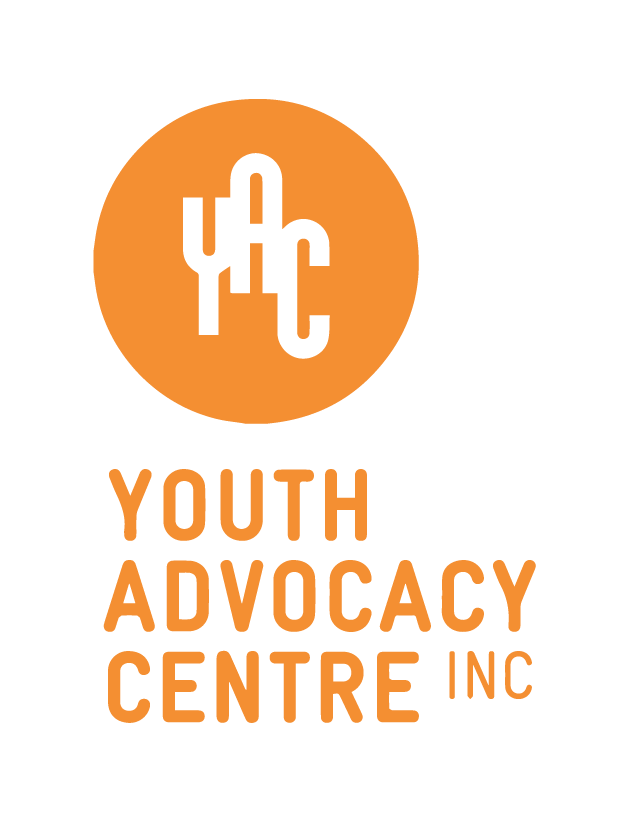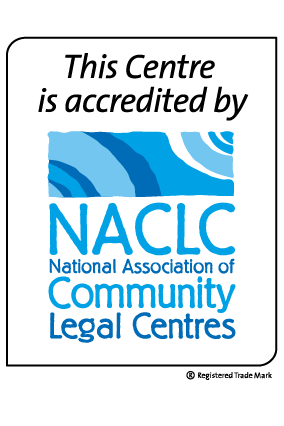Dealing with Police as a Parent
Information for parents on dealing with police when your child may have broken the law.
Parents will commonly first learn their child may have broken the law when police phone or arrive at the door. It is important to:
- keep calm
- find out as much as possible about what police say the young person has done – remember a complaint to police does not automatically mean your child has broken the law (even if they have done something wrong)
- ask why the police want to speak with your child.
It is recommended your child tells police that they will decide whether to give a statement or answer questions AFTER they have spoken with a lawyer. Your child may call the Youth Hotline on 1800 527 527 or if your child identifies as Aboriginal and Torres Strait Islander they may call ATSILS on 1800 012 555.
For information on what your child does or does not have to do in relation to police and what happens if they have to go to court, see the YAC Info sheets named: Police – Facts You Need to Know; If I am Charged; Court; Childrens Court Queensland; Court Orders. These are located on our website and hardcopies are available from our office.
Are police allowed to come into my home or search my car?
There are a number of ways police can legally conduct a search. The three main ways are:
- Search warrant– if police seek to enter your home or examine your car with a search warrant you have the right to get a copy of this warrant and the name, rank and station of the police officer.
- Reasonable suspicion– police can enter a private place, such as your home or car, without a warrant if they have ‘reasonable suspicion’ they will find evidence of an offence, and this evidence may be hidden or destroyed unless the place is immediately searched.
- Consent– if you give police permission to search, police can stay in your home or keep searching your car until such time as you withdraw that consent. If you withdraw your consent, police have to leave unless they have a specific power they are relying on to stay and search.
If police take away any property belonging to you or your child, they must provide a field property receipt.
Do I have to call the police if I think my child may have broken the law?
If you are concerned your child may have broken the law you do not have to contact the police. However, there are potential consequences for parents if your child brings certain things into your home. For example, if you think your child is using drugs, you are not under a legal obligation to let police know. However, if police find drugs belonging to your child at your home, it is assumed you had knowledge of the drugs since you are deemed to have control of the house.
You may have to prove you did not know the drugs were there and that you had no reason to suspect the drugs were there. If you try to hide evidence of an offence or do something like putting items you think have been stolen in the bin, you could also be charged with breaking the law. This means you do not have to tell police about anything your child may have done, but you also cannot do anything to cover up what they may have done. If your child is over 18 and you have a reasonable suspicion that they have committed a sexual offence against a child, you are required to report this to police.
Do I have to go with police or give a statement to police?
During an investigation police may seek to gather information from many sources including parents, even if the parents are not directly involved. There is no legal obligation for a person (or parent) to talk to police about any matter. You do not have to go anywhere with police, such as to the police station, unless you are under arrest.
Police might want to question you about where your child was at a certain time. If police approach you to give a statement it is important to know that you do not have to say anything, however, you should never lie to police. For example, saying your child was at home at a certain time when you know they were not or trying to mislead police may lead to you being charged with an offence.
If police approach you or your child it is best to give your correct name, address and age as it can be an offence not to do so. Be aware that anything you say (even on the street) may be tape-recorded without you knowing. There is no such thing as an ‘informal’ or ‘off the record’ chat or interview. Interviews include when police ask you questions beyond your name, address and age. These interviews are then commonly used as evidence.
Support person’s role in a police recorded interview
A person under 18 years of age must have a support person at a police interview. This support person has to make sure the child understands the process and their rights, that they can exercise those rights and must ensure that police conduct the interview fairly. If your child decides to agree to an interview, one of the best ways to support them is to organise for the interview to take place AFTER your child has spoken with a lawyer. Unless police know a lawyer has been organised for your child, police must contact a representative from a legal aid organisation and inform them before they question your child. See the list below for phone numbers for free legal help.
If you are angry with your child, your ability to be a support person can be a problem. Before the interview you should confirm whether your child wants you to be their support person or if they want another trusted objective adult to support them.
What is the role of police if the young person formally admits they broke the law?
- Caution the young person (give them a formal warning) because they have not been in much trouble before or have not committed a serious offence. Police must ensure either an adult chosen by the child or a parent is present for the Caution. There is no obligation on a parent to be present but if you do not attend and there is no other adult whom the child wants there, police will not be able to issue a Caution. This may mean police charge the young person with an offence instead and your child will have to go to court.
- Allow the young person to attend a Restorative Justice Conference. At a conference the child will have the opportunity to discuss the consequences of committing the offence with the people they affected, such as the victim. The aim of the conference is that both parties agree on how young person will make amends. This might be by way of an apology, agreeing to pay the victim some money or agreeing to attend a program. The young person must have a support person at the conference. Parents are entitled to be there even if the young person is supported by another adult.
- Offer a Drug Diversion Assessment Program if drugs were involved in the offending. Police will do this if they believe a Caution is not suitable. The Drug Diversion Assessment Program is one session with a drug counsellor that lasts around two hours. Parents do not to attend the program.
If my child is charged and has to go to court, do I have to be there?
If a young person has to go to court, the court usually requires the parent to be there. If no parent attends, the court will want to know where the parents are and why they are not present. The court will then issue a notice ordering the parents to come to court, and if they still do not attend, the parents can be fined by the court.
When the Magistrate/Judge chooses the most appropriate court order (sentence) for the young person, they will consider how the young person's parents has responded to the alleged offence. Helping your child to learn from the event and to change their behaviour will be viewed positively by the court.
What if my child is the victim of a crime?
It is the role of police to investigate crime. People do not have to report a crime to police. If you have a reasonable suspicion that a sexual offence has occurred against a child by an adult, then you are required to report this to police.
It is important to understand what may happen if a matter is reported, so it may be useful to talk to a lawyer first. If a young person decides to report a crime to police it is then up to the police to decide whether there is enough evidence to charge the person alleged to have committed the offence.
Where your child is a victim, they will usually be the main prosecution witness. Your child may also be eligible for compensation depending on the crime and a lawyer can advise on the process of how to obtain this. YAC can provide support to young people appearing as complainants or witnesses in court matters and help them to manage the process. See contact details below.
How can I withdraw a complaint to police about my child?
Sometimes parents complain to or call the police about their child and the police then charge the young person with an offence – such as with wilful damage or assault. Parents should be aware of the legal and non-legal consequences of doing this and you may want to talk to someone before doing so. If a parent later decides that they don’t want the matter to go to court, they can seek to withdraw their complaint at any time, including after the young person has been charged and court proceedings have started. Any officer at a police station counter can assist the parent in filling out a ‘Withdrawal of Complaint’ form. The form will then be brought to the attention of the arresting officer, who will assess what steps are to be taken, such as having the charge formally dismissed by the court. However, if there is other evidence about the offence, the police can still decide to proceed and the parent may still have to give evidence in court against their child if the child decides to plead “not guilty”.
Who can help?
Duty Lawyer at Court
Youth Advocacy Centre (YAC)
www.yac.net.au
3356 1002
Hub Community Legal
www.hubcommunity.org.au
3372 7677
Logan Youth & Family Legal Service
www.yfs.org.au
3826 1500
Legal Aid Queensland
www.legalaid.qld.gov.au
1300 651 188
Youth Legal Advice Hotline (Monday – Thursday 8am – 9pm; Friday 8am – Sunday 5pm)
1800 527 527
Aboriginal & Torres Strait Islander Legal Service (24hrs 7 days a week)
www.atsils.org.au
3025 3888 or (free call) 1800 012 255
Translating & Interpreting Services (24hrs)
131 450
Community Legal Centres (CLCs) see www.naclc.org.au for your nearest CLC
Browse other legal topics
This sheet is intended to provide general legal information about the law in Queensland. This information is not legal advice. If you have a particular legal problem you should contact a solicitor for legal advice. Below is a list of agencies that might be able to assist you, including legal agencies.
This sheet was last reviewed and updated in January 2024. The Youth Advocacy Centre does not accept responsibility for any action or outcome because of anyone relying on the information provided.
Follow Us
Follow us on social media for information on laws, youth rights, and news.
Contact YAC
Street address: Level 4, 16 Peel Street, South Brisbane Q 4101
Mailing address: Level 4, 16 Peel Street, South Brisbane Q 4101
Tel: (07) 3356 1002
Bussiness hours: 9am - 5pm, Mon - Fri

If you need urgent assistance outside of these hours:
- Youth Legal Advice Hotline 1800 527 527 (Mon to Thurs 8am - 9pm, Friday 8am to Sunday 5pm)
- Kids Helpline 1800 551 800 (24/7, 365 days per year)
- Lifeline 13 11 14 (24/7, 365 days per year)
- Homelessness Hotline 1800 474 753 (24/7, 365 days per year)
- If you are over 18, and seeking access to Mental Health Services in Queensland, Acute Care Team on 1300 MHCALL (1300 64 2255).


